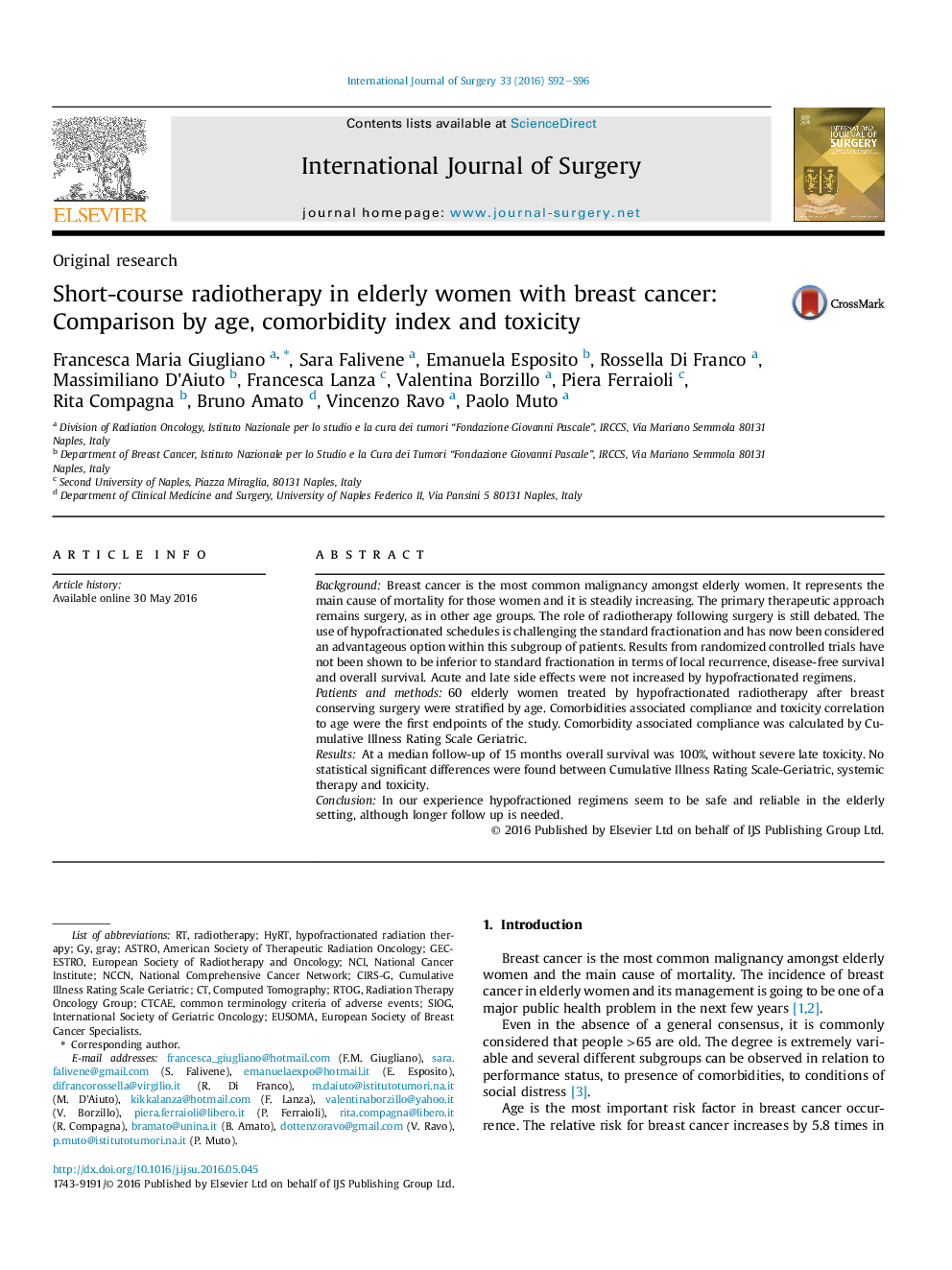| Article ID | Journal | Published Year | Pages | File Type |
|---|---|---|---|---|
| 4285372 | International Journal of Surgery | 2016 | 5 Pages |
BackgroundBreast cancer is the most common malignancy amongst elderly women. It represents the main cause of mortality for those women and it is steadily increasing. The primary therapeutic approach remains surgery, as in other age groups. The role of radiotherapy following surgery is still debated. The use of hypofractionated schedules is challenging the standard fractionation and has now been considered an advantageous option within this subgroup of patients. Results from randomized controlled trials have not been shown to be inferior to standard fractionation in terms of local recurrence, disease-free survival and overall survival. Acute and late side effects were not increased by hypofractionated regimens.Patients and methods60 elderly women treated by hypofractionated radiotherapy after breast conserving surgery were stratified by age. Comorbidities associated compliance and toxicity correlation to age were the first endpoints of the study. Comorbidity associated compliance was calculated by Cumulative Illness Rating Scale Geriatric.ResultsAt a median follow-up of 15 months overall survival was 100%, without severe late toxicity. No statistical significant differences were found between Cumulative Illness Rating Scale-Geriatric, systemic therapy and toxicity.ConclusionIn our experience hypofractioned regimens seem to be safe and reliable in the elderly setting, although longer follow up is needed.
